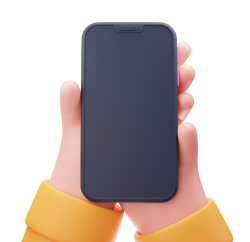
Got a Project? Tell us about it!
We are a leading custom software development agency focused on web, mobile app development & SaaS application development & MVP Development.
Java vs. Python for Web Development: The Difference, Features, Price Comparisons
- Development
- Technology
- Web Design & Development
Our experienced team of UX/UI designers and developers will help you stand out with a beautifully designed UX/UI.
What Exactly Is Java Development?
 Sun Microsystems' Java was formerly the go-to cross-platform programming language for complex applications, scripting, and web development (later bought by Oracle). In actuality, this programming language behemoth's popularity in software development has just lately waned. Java is a general-purpose programming language, as are many other prominent computer languages today. It is appropriate for a wide variety of applications and development environments.
Java began as a programming language to enable technology embedded in consumer items such as automobiles, home electronics, and a wide range of other applications. As a result, Java is tailor-made for the burgeoning Internet of Things industry, supporting Java and Java developers in keeping a foothold in today's coding scene. Because its source code is compiled into bytecode and then utilized by a JVM for compilation, Java is categorized as both an interpreted and a compiled language.
Sun Microsystems' Java was formerly the go-to cross-platform programming language for complex applications, scripting, and web development (later bought by Oracle). In actuality, this programming language behemoth's popularity in software development has just lately waned. Java is a general-purpose programming language, as are many other prominent computer languages today. It is appropriate for a wide variety of applications and development environments.
Java began as a programming language to enable technology embedded in consumer items such as automobiles, home electronics, and a wide range of other applications. As a result, Java is tailor-made for the burgeoning Internet of Things industry, supporting Java and Java developers in keeping a foothold in today's coding scene. Because its source code is compiled into bytecode and then utilized by a JVM for compilation, Java is categorized as both an interpreted and a compiled language.
- Java is statically typed, which implies that it is created and interpreted by a compiler.
- Java is present in practically every application. It is, however, prevalent in Android programming and IoT.
1. Java is to be easy to use.
Consequently, writing, developing, debugging, and learning is simpler than most other programming languages. Programmers can learn Java rapidly and write high-quality code.2. Platform-independent
Java can quickly go from one software platform to another. In industries such as web development, the ability to execute the same program on many platforms is critical.3. Cross-platform Flexibility
Because of its cross-platform nature, programmers can write a single piece of code that can run on desktop, mobile, and embedded systems.Our experienced team of web designers and developers will help you stand out with a beautifully designed and functional website and web application
4. Object-oriented programming
Because Java is object-oriented, developers may build modular programs with reusable code. This saves a significant amount of time and effort, enhancing the development process's productivity.What is Python Development?
- Python is dynamically typed, which implies that type verification happens at run-time rather than compile-time.
- Python is great for scientific and numerical calculation and more complex applications. It is, nevertheless, a popular back-end web development language.
- Object-Oriented vs. Functional: Python is an object-oriented programming language, like C# and C++.
Our experienced team of will help you stand out with a bespoke, flexible and scalable software application for your business.
1. Various assistance libraries are available.
Python's support libraries cover many subjects, including internet protocols, string operations, Python web development, and operating system interfaces. These libraries provide the basis for a wide variety of complicated programming. Consequently, programmers are not obliged to write such programs from the beginning.2. Modules provided by third parties.
Many third-party modules are included in the Python Packaging Index. Consequently, the language is capable of interacting with various computer languages and development platforms.Our experienced team of web developers will help you stand out with a functional and well built eCommerce web platform.
3. Excellent readability.
Python has a clear, straightforward, and simple syntax. Python's coding style guidelines provide a set of fundamental rules and best practices for code formatting.4. An organized data structure
Python comes with built-in data structures like lists and dictionaries. These make it simple for developers to generate run-time data in a short time. Furthermore, Python enables developers to use dynamic, high-level data types, which reduces the amount of support code required.Our experienced team of android developers will help you stand out with a efficient and fast mobile app for your business.
5. Rapid advancement.
Python's clean, the object-oriented design enables lightning-fast programming. It provides enhanced strong integration, process control, code processing, and efficient unit testing. When these ingredients are combined, they result in greater speed and output. As a result, Python is frequently used for developing multi-protocol applications.Java Vs. Python for Web Development
1. Performance
Python is built at run-time, which means it uses more resources. As a consequence, performance diminishes. Java is unique in that it is compiled before being executed. Java converts source code to bytecode, which enhances overall performance, especially during run-time.2. Project Costing
Python often needs fewer engineers to execute a project, making it a cost-effective language for development teams. Java often requires more developers to complete the same project as Python. An MVP in Java may take months, but it just takes weeks with Python.3. Scalability
Despite the fact that Python is a more straightforward language, the performance of Python-coded applications needs interpretation at run-time, which consumes more processing resources than Java. Java has various characteristics, including multithreading and real-time construction (the JIT compiler), which enables more scalable projects.4. Security
Python is a well-known secure programming language, yet, it is less safe than Java due to some of Java's excellent security features. Java is often considered a relatively secure programming language due to its comprehensive security features such as access control and built-in authentication services.5. Ease of Utilization
Python has a minimal code and resource overhead, making it a very user-friendly programming language. Compared to Python, the learning curve for Java is considered steeper. Java also requires more code or a bigger team of programmers to complete a certain project.6. Popularity in the marketplace
Finally, the market desirability of a development platform, especially among developers, has a significant impact on its future. For many years, Java has dominated the app development business. However, with the release of the Kotlin development platform, its popularity started to decrease. Nonetheless, Java is one of the most widely used programming languages. Python's popularity has remained stable. Indeed, due to the introduction of sectors such as Kivy Python app development, it has experienced a growth in usage across the business. Consequently, in terms of popularity, both languages are highly competitive.Java vs. Python Performance
 When it comes to performance, it's a bit of a double-edged sword. The Python vs. Java benchmark test clearly shows that Java is faster. Java is statically typed, which means it compiles faster, has fewer errors, and can target specific platforms more effectively. In addition, Java features a Just-In-Time (JIT) compiler that works in concert with the JVM to increase efficiency even further. Java's consistent workflow is valuable for performance since the strict limitations around writing and error handling makes it predictable and robust, capable of controlling performance even with large applications.
The drawback of Java is that it takes longer to build applications; nevertheless, this is where Python shines. Python's concise syntax makes program creation fast and easy, but it is interpreted and dynamically typed. This may hinder production since it is checked at run-time rather than compile time. Python and other dynamically typed languages are notorious for being difficult to debug, particularly as an application grows in size.
Python has made an effort to combat sluggish execution times by introducing PyPy, Jython, and Cython, which enable you to boost speed, although it is still slower than Java. Jython runs Python by compiling it into Java bytecode, while Cython runs Python by compiling it into C/C++. Finally, Python cannot be surpassed in terms of speed; nevertheless, you must pick which part is more important given Python's rapid evolution.
When it comes to performance, it's a bit of a double-edged sword. The Python vs. Java benchmark test clearly shows that Java is faster. Java is statically typed, which means it compiles faster, has fewer errors, and can target specific platforms more effectively. In addition, Java features a Just-In-Time (JIT) compiler that works in concert with the JVM to increase efficiency even further. Java's consistent workflow is valuable for performance since the strict limitations around writing and error handling makes it predictable and robust, capable of controlling performance even with large applications.
The drawback of Java is that it takes longer to build applications; nevertheless, this is where Python shines. Python's concise syntax makes program creation fast and easy, but it is interpreted and dynamically typed. This may hinder production since it is checked at run-time rather than compile time. Python and other dynamically typed languages are notorious for being difficult to debug, particularly as an application grows in size.
Python has made an effort to combat sluggish execution times by introducing PyPy, Jython, and Cython, which enable you to boost speed, although it is still slower than Java. Jython runs Python by compiling it into Java bytecode, while Cython runs Python by compiling it into C/C++. Finally, Python cannot be surpassed in terms of speed; nevertheless, you must pick which part is more important given Python's rapid evolution.
Conclusion
It's a bit of a double-edged sword when it comes to performance. According to the benchmark Python vs. Java test, Java is unquestionably faster. Java is statically typed, which means it compiles faster, has fewer errors, and is better suited to certain systems. In addition, Java features a Just-In-Time (JIT) compiler that works in concert with the JVM to increase efficiency even further. Java's constant workflow also aids performance since the strict limitations around writing and error handling makes it predictable and robust, allowing it to regulate performance even with large applications. The downside of Java is that it takes longer to build apps, whereas Python excels in this area. Mobirevo is a Java development company in Port Harcourt, Nigeria, we have gathered the technical information you need to create a dynamic and comprehensive solution for your business. Mobirevo provides R&D services and reliable results-oriented products with java development best practices. You can contact us today to get a free quote. Our team at Mobirevo strives to provide unrivaled services to all of our valued clients. You can also check out our case study page to see our client's portfolio and better understand the quality of products we deliver. Also, contact us if you have any questions about our services, and we will get back to you as soon as possible. Want to receive more content like this? You can signup for our newsletter, which features curated opinions and product discovery tools for building remarkable digital assets. If you sign up for our weekly newsletter, you will be the first to know when we publish fantastic content like this. You can also visit our blog to see other content created with love by our amazing team.Got a Project? Tell us about it!
We are a leading custom software development agency focused on web, mobile app development & SaaS application development & MVP Development.
Subscribe to Our Newsletter
Join over 5,000 enterpreneurs and businesses who already have a head start.
Got a Project? Tell us about it!
Our Engagement Models
OUR PRESENCE
BLOCKCHAIN
OTHER SERVICES WE OFFER
CONTACT
Copyright © 2022 Mobirevo Software & Technologies LTD a company duly registered with CAC with RC Number: 1756190. All rights reserved.

Got a Project? Tell us about it!
We are a leading custom software development agency focused on web, mobile app development & SaaS application development & MVP Development.







